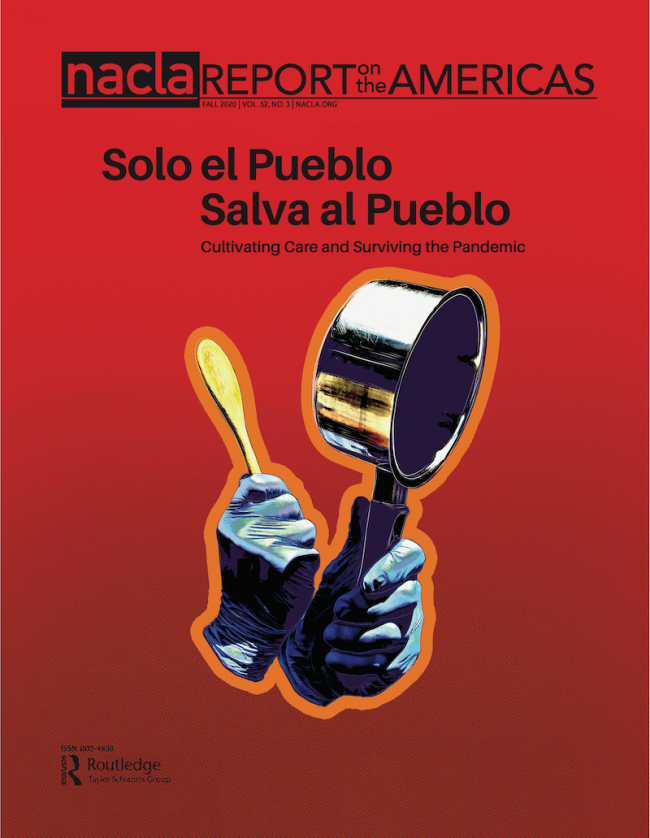
The pandemic of the novel coronavirus that began in 2019 has radically reshaped our world. While the effect has been devastating, people have adapted by continuing to craft their lifeways creatively, thereby recasting what it means to engage in political activism and resistance to neoliberal capitalism. In the months before Covid-19 emerged, Latin America was ablaze with protest; from Chile to Ecuador to Puerto Rico, unprecedented popular protests with broad, intersectional demands for social justice had reached a fever pitch. Already, Indigenous, Brown, and Black life was at stake.
In 2018, Zapatista women invited those gathered at their first international women’s encuentro to adopt a straightforward accord: “Acordamos vivir”—an agreement to live. “And since for us to live is to struggle,” they continued, “then we agree to struggle.” Against the necropolitics of extractivism and imperialism, this simple statement and declaration that subaltern people—Indigenous and Black people, women, the poor, and the colonized—intend to survive has echoed powerfully into the present. With the advent of the pandemic and the economic effects of the public health measures instituted to prevent transmission, everyday life became more precarious for many, and public space became synonymous with danger.
This issue of the NACLA Report explores public health and social issues that, despite predating Covid-19, can be viewed with renewed urgency through its lens. At the same time, it spotlights grassroots responses and resistance in this time of collective mourning and despair. The title—Solo el Pueblo Salva al Pueblo (Only the People Save the People), a common refrain across Latin America—captures this dynamic. As Boricua activist and scholar Isa Rodríguez Soto writes in this issue, the expression “comes not from mere benevolence, but from a place of exhaustion and survival.” Grassroots initiatives—from communities mobilizing mutual aid to feminist movements facilitating access to reproductive care—can be lifesaving and even beautiful experiences. Yet they also represent the systematic state abandonment that forces communities to fill the gaps. “Rethinking contagion,” as Bolivian anarchist feminist María Galindo invited us to contemplate in the early days of the outbreak in the Americas, involves a question of what autonomous and agentive responses to and management of our “sickness, weakness, pain, thoughts, and hope” might look like in the face of state failures and repression.
In a widely circulated piece published at the start of the pandemic, philosopher Paul B. Preciado urged us to “go from a forced mutation to a chosen mutation” and to “operate a critical reappropriation of biopolitical techniques and their pharmacopornographic devices.” The articles in this Report document the intensification of necropolitical violence generated by the pandemic, as well as the cultivation of care and survival through exchanges of solidarity made possible by the chosen mutation of reciprocity. This is a report from a Latin America in struggle. People have not given up and are still fighting for survival, even against increasingly cruel odds.
Adriana María Garriga-López is an anthropologist and multidisciplinary artist from San Juan, Puerto Rico. She is associate professor of Anthropology at Kalamazoo College in Michigan.
Heather Gies is managing editor of the NACLA Report.

